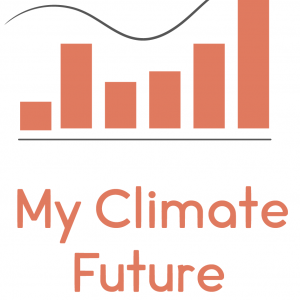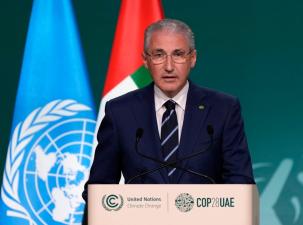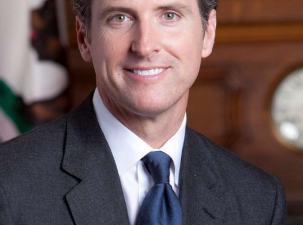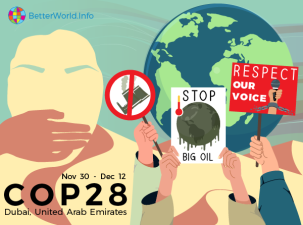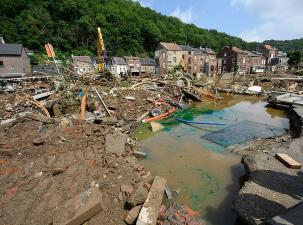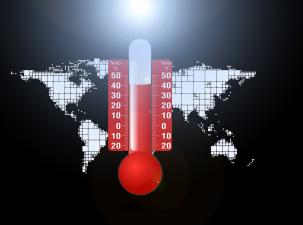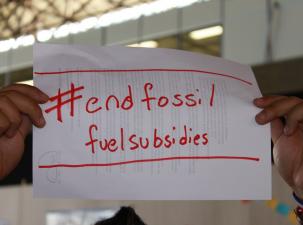Climate Crisis

GLOBAL CLIMATE CRISIS Guide
Our changing climate has become one of the biggest global threats to peace, security, human rights, and our environment.
Climate change warnings began over 50 years ago. Scientists revealed how rising carbon dioxide levels in our atmosphere would impact our climate systems and contribute to raising temperatures. Since the industrial revolution, global economies have been built around the fossil fuel industry. The ongoing profits are in the trillions.
Despite all the devastating signals, we are still failing to meet almost every target set to curb emissions. Inaction by world leaders has become the norm, likewise their hollow promises.
Two-thirds of extreme weather events in the last two decades were influenced by humans. Wildlife populations are plummeting, diseases are spreading faster, polar ice is melting, heat records are being broken year after year, and depleted resources are increasing violent conflict. Annually, 21.5 million people become climate refugees.
Better World Info is a major ➡️ platform on climate for activists, NGOs, experts, campaigners, and concerned citizens. Find the most reliable and trustworthy sources all in one place.
This in-depth guide with over 16,000 resources explores the causes, consequences, and solutions to our changing climate. Learn about the major players – good and bad, the inspiring climate movement, international conferences, what you can do, how you can live more sustainably, and why the climate emergency is still a battle that can be won.
‘Once we start to act, hope is everywhere. So instead of looking for hope, look for action. Then, and only then, hope will come.’ - Greta Thunberg
For German speakers, be sure to check out our sister site Bessere Welt Info and the essential Klima Krise guide with 7,000 links.
Where can I find Reliable Climate News?
Better World Info has collated the very best sources for reliable climate news. Search through magazines, newspapers, journals, and find our recommended blogs, podcasts, video news, and so much more.
Amongst our unique Twitter lists you will find the latest campaigns, progress in the climate movement, and access to climate scientists, journalists, NGOs, and experts in the following categories; Climate change, environment, fossil fuel divestment, renewable energy, and the SDGs.
Better World Info’s full Twitter lists can be found here, please follow these to stay up to date with the latest climate change developments.

Where can I get Background Info on Climate Change?
As one of the biggest global issues that we are currently facing, the topic of climate change can seem daunting. Whether you are a climate expert, a long-time campaigner, a concerned citizen, or just here for some research, Better World Info has you covered.
Here you will find a sweeping overview of important climate topics. Our key resource section includes only the most reliable and comprehensive climate directories, books, reports, and studies.
Reports by the IPCC and the UNEP are essential for assessing the causes, impacts, and potential responses regarding our changing climate. One IPCC report from 2022 revealed that the impacts are more widespread than previously thought, and that for some of the impacts it is already too late to adapt to.
Projections show that we are set to cross the 1.5-degree limit by 2040. Just half a degree more and the effects on poverty, temperatures, sea level, biodiversity loss, and drought will be significantly worse.
One of the worst revelations was that many of these gas and oil giants knew! From as early as 1977 internal researchers from Exxon made shockingly accurate predictions confirming the relationship between carbon emissions and rising temperatures. They publicly downplayed the risks for decades pushing climate change denial, and clever greenwashing campaigns.
Learn all about climate targets such as 350 PPM safe carbon dioxide levels, the 2°C climate goal, and other important climate tipping points. Dive deep into the complex world of climate ethics and climate debt. Here we demonstrate how human rights are being impacted by climate change, how it deepens inequality and injustice.
Our extensive category on the Sustainable Development Goals adopted by UN member states in 2015 further details the need for action to ensure that our fundamental rights are upheld. These goals relate to key indicators such as hunger, clean water, health, employment, ocean protection, clean energy, and sustainability.
At the recent COP15 UN Biodiversity Summit, 196 of the world's nations have agreed to protect our planets biodiversity - 30% of all land and water by 2030. Additionally, they have pledged to commit a minimum of $200 billion annually to biodiversity related funding.
Explore how the climate crisis negatively affects our economy and stock markets. Find responsible and informative climate change information for children, and stay informed with our recommended documentaries and movies.
Look no further for eye-opening resources on the fossil fuel industry, sustainability, environment, nature , and Earth Day. We also offer specific climate news and policy updates for the UK and USA.

What are the Causes of Climate Change?
Many factors have contributed to our changing climate – all of which are man-made. The primary cause is increased carbon dioxide in the atmosphere due to fossil fuel energy production. Pre-industrial revolution CO2 levels were around 280 PPM, this was the case for 6,000 years. The levels today are 50% higher at 420 PPM.
Learn about the NGOs tracking carbon emissions, such as Carbon Trade Watch, and find excellent resources which allow you to view the data, compare carbon emissions in different countries, and calculate your own carbon footprint.
Other than using it to heat and light our homes and businesses, fossil fuels are relied upon heavily for transportation. 12% of global emissions derives from road and air travel. Discover the impact that cars have on air quality, as well as alternatives such as bicycles, car-sharing, and electric cars. Find further sections on the destructive shipping industry, green flying possibilities, and trains.
An often-overlooked cause of emissions is the military. Globally, 5% of carbon emissions is derived from military vehicles, and forces. 2022 saw unprecedented spending on military budgets, and at least 27 regions enduring armed conflicts. Not only does the military contribute towards the climate crisis, but climate change also causes more conflicts! Peacebuilding and nonviolence are essential and undervalued tools in battling climate change.
In another climate conundrum, deforestation is a major contributor of carbon release - 4.8 billion tonnes annually to be exact. Scientists have known the value of trees as carbon sponges for decades, yet we continue to destroy around 10 million hectares of forest every year (roughly the size of Colorado).
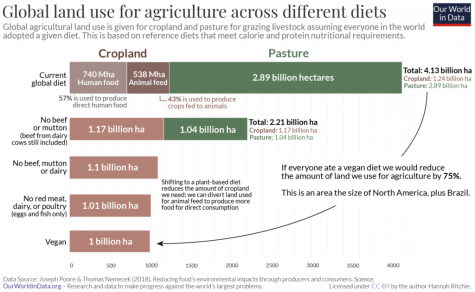
Closely linked is the intensive agriculture industry. Responsible for 29% of global carbon emissions, massive changes are needed in our food production systems. Agriculture is the leading motive for land clearance, beef alone is responsible for 41% of global deforestation. Heavy fertiliser and pesticide use along with monocrops are causing a biodiversity crisis, and unsustainable practices have caused irreversible soil erosion and depletion.
Agriculture is not only a culprit of climate change, but it is also suffering disastrously from it. We are witnessing large scale food insecurity, reduced productivity and quality, and a sharp increase in food prices in what is called the global food crisis.
Learn more about Arctic methane release, capitalism, Big Meat, manufacturing and plastic production, and much more here.
What are the Consequences of Climate Change?
As the climate crisis worsens, we are seeing more frequent and unpredictable extreme weather events. WHO has declared it the biggest health threat facing humanity. Devastatingly, those who are affected first and most severely, are the nations and communities who contribute least to it causes. Developing countries which support higher populations of low-income and disadvantaged people are on the frontlines of climate change, and are the least able to protect themselves.
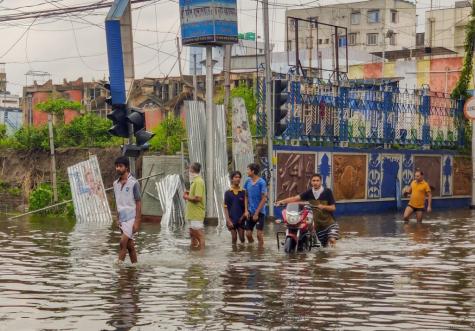
Hurricanes and large-scale flooding events such as the recent flooding in Pakistan are deadly. They destroy livelihoods, crops, and clean water supplies, make sanitation impossible, and spread diseases.
Exacerbating the problem are rising sea levels resulting from melting ice sheets and glaciers, and the expansion of water as the temperature rises. Learn about how disappearing Arctic Ice & Permafrost is creating untold damage to ecosystems and indigenous populations.
It seems we are hitting new temperature records every year. In the U.S. heatwaves are now the deadliest natural disaster. Measurements of the Earths global average surface temperature revealed that 2015 – 2022 were the eight warmest years on record.
With increasing temperatures and drier conditions wildfire seasons are becoming longer, more widespread, and more destructive. Since the year 2000, an average of 70,000 wildfires have burned each year in the U.S. - double the average in the 1990’s. This equates to an enormous 7 million acres lost annually (roughly the size of Albania).
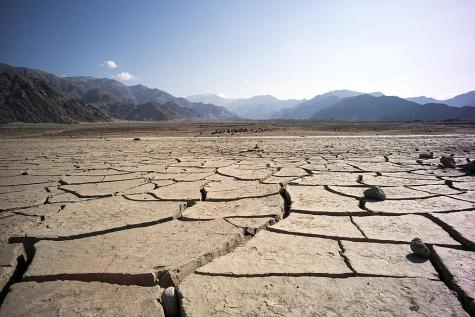
Droughts and the resulting impact on agriculture are causing hunger, poverty, food insecurity, and pushing up food prices. With more than 40% of the world's population relying on agriculture as their main source of income, it is not surprising that drought is the climate change consequence most people are worried about.
On the flip-side, cases of extreme cold weather are now occurring more frequently in moderate latitudes. One thing for sure is that we are seeing extreme weather from all ends of the spectrum, and although some regions are more vulnerable than others, no place will remain unaffected.
As whole regions become unliveable, people are forced to leave their homes in search of safety, improved quality of life, and financial prospects. Since 2008, 21.5 million climate refugees have been displaced annually by weather-related events.
The majority of these climate migrants come from rural areas where the economy is based on the vulnerable agriculture sector. Climate change is now multiplying the threat of conflict in these at-risk areas as instability rises. Resource competition, food and water scarcity are indirectly driving wars.
If human and environmental costs aren’t enough to prompt leaders to take action, the eye-watering financial cost of climate change definitely should! The NOAA recently revealed that 310 climate related disasters since 1980 have cost the U.S. more than $2 trillion!
Shocking estimates calculate the cost of unchecked climate change to the world economy to be $178 trillion by 2070.
How can we Limit Climate Damage? What are the Solutions?
Meaningful long-term climate action is very much a now or never situation. A 2022 report by the IPCC revealed that ‘without immediate and deep emissions reductions across all sectors, limiting global warming to 1.5°C is beyond reach.’
Greenhouse gas emissions reached the highest levels in history between 2010-2019, but the rate of growth has since slowed. Renewable energy costs are falling. New policies and laws have increased energy efficiency, and levels of deforestation have stabilised. There are reasons for hope and we already have the tools and knowledge needed. Only if governments and world leaders step up and enforce large scale implementation, the worst could be avoided.
Better World Info takes an in-depth look into each of the solutions available. Strictly regulated climate policy is essential to ensure that targets are adhered to. Find information on the Green New Deal, national and regional initiatives, funding and tax options such as carbon tax and climate damages tax.
We simply must end our reliance on coal and fossil fuels. This includes removing the enormous governmental subsidies propping up the industry, and encouraging massive divestments from banks and universities. The IMF estimates that fossil fuels currently account for 85% of all global subsidies, a figure which massively hampers the renewable energy sector.
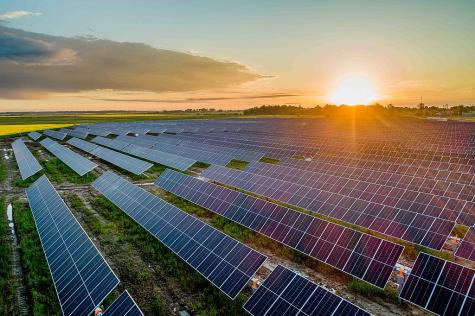
We depend on energy to keep the world moving, to uphold a certain standard of living, to maintain our livelihoods, and to provide us with food. If we are to keep fossil fuels in the ground, the must ensure there are reliable, affordable, and clean alternatives. Wind, solar, wave, and hydroelectricity offer excellent renewable energy options. However, we cannot reduce fossil fuel dependency without sufficient renewable energy funding.
Leading the way is Iceland, where 85% of energy supply is from domestic renewable sources. As the global pioneer in the field, they prove that it can be done. Norway and New Zealand closely follow. Other benefits include greater job creation, cheaper energy, and reduced air pollution.
High-tech solutions to the climate crisis include carbon capture, and nuclear power. Both options are riddled with controversy, carbon capture itself is extremely energy intensive, and issues with radioactive waste and the potential for nuclear accidents are too risky to ignore.
Carbon offsetting aims to mitigate climate crisis through the purchasing of offsets which remove carbon from the atmosphere. One carbon offset equals one tonne of carbon emissions. When governments introduce emissions targets, businesses must reduce carbon production as much as possible. Offsets can be bought when emissions exceed targets, and carbon is removed from the atmosphere somewhere else.
Unfortunately, these emission reductions are almost impossible to measure. Offsets seem to be a lazy substitute for real climate action. It does not tackle the root cause of climate emissions, and allows businesses to continue irresponsible practices. Used correctly, money could be channelled into conservation projects, however these offsets can easily be used as a tool for greenwashing.
With strict targets, policies, and climate regulation we are witnessing increasingly successful climate lawsuits. These legal challenges mean that destructive industries and governments can no longer enjoy impunity for their actions. These trials give vulnerable communities a voice, and the threat of legal action and financial risk means that companies are being forced to implement positive changes.

Nature based solutions include reforestation projects, rewilding, ecosystem and wetland restoration, and implementing environmentally friendly agricultural practices. Not only do they help reduce climate risk, they also improve biodiversity and soil quality, and reduce flooding and other natural disasters. These initiatives have proven successful but remain massively underfunded due to governmental short-term goals.
Climate education is another key tool we can use to address climate change. By empowering those living on the frontlines of climate change with the knowledge, skills, and behaviours needed, we can help millions of people adapt to this global emergency. Current and future generations need to have a deeper understanding of the issues at stake when it comes to climate change. Populations who understand the causes and risks of our changing climate are able to build resilience, drive forward the energy transformation, unlock national potential for economic growth, strengthen locally driven research, and engage with Indigenous solutions.
Explore all of these solutions to the climate crisis, as well as energy waste reduction, sustainable choices, behaviour & society change, climate adaptation & resilience, population control, and methane reduction.
Who are the Key Players in Climate Change?
Here you can learn about the most influential people in climate – the good and the bad. To start we have collated the biggest, best, and most effective NGOs fighting for climate action, emissions reduction, and accountability. Find international and regional networks organised by country.
The role of governments in the battle to avert climate catastrophe is critical. Not only are they responsible for implementing and regulating effective policies, but also for allocating adequate funding to initiate progress. Learn more about official climate change programmes, green new deals, UN reports, and global and regional efforts.
Lack of governmental action has forced citizens to take matters into their own hands. Learn about inspiring divestment and fossil free campaigns who are organising protests, raising awareness, and putting public pressure on governments, industry, and banks to act. Find interesting categories on the tireless work of Greta Thunberg's Fridays For Future, Extinction Rebellion, Just Stop Oil, and other inspiring activists.
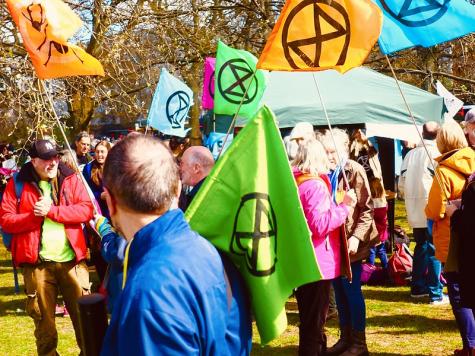
Climate scientists and institutes also play a very important role in the climate movement. Through research and studies they dissemination reliable climate knowledge, and fight against greenwashing, disinformation, and fake news.
As for the bad guys, find detailed information on fossil fuel companies who have known about the negative impacts of carbon emissions for decades. With their huge financial clout and influence, they have been downplaying the consequences for just as long. By funding climate science denial, initiating new destructive projects, and lobbying, they not only continue to generate enormous profits and enjoy impunity, but they also block climate progress.
At the recent World Economic Forum in Davos, Greta Thunberg blasted the United Arab Emirates decision to allow oil executive Sultan Ahmed al-Jaber to chair the upcoming COP28 climate talks. Just another example of lobbyist's influence.
Who is Leading the Climate Movement & what are the most Important Campaigns?
Better World Info is a great guide for global environmental events. Find past and upcoming climate strikes, marches, boycotts, campaigns, and excellent examples of nonviolent protests to get your voice heard.
Find essential information on organising peaceful nonviolent action, online campaigning, and a huge guide of tools and resources for activists and changemakers.
Also learn about campaign sites such as climate camps and how you can get involved. An excellent form of peaceful action where likeminded people can network, share knowledge, and speak up for important environmental causes.
Recently 35,000 climate activists gathered in the small German village of Lützerath to protest its demolition for an extension of a lignite coal mine - which would violate commitments made in the Paris Agreement at COP21. The camp made international news, and although the remaining activists have now been removed, this tiny hamlet became a global symbol of the climate movement.

What are the UN Climate Change Conferences? (COP)
These annual global climate summits are designed to review progress made by members in limiting climate change. They review emissions inventories, ensure that all parties are represented equally, and after long negotiations and debates they set agreed upon targets to be met by all.
Almost 30 years have passed since the first COP took place, in that time the climate crisis has become a global priority. Better World Info provides a key platform on these COP conferences. Here you can find extensive information covering the important events in one place.
Special highlights include COP 21 which took place in 2015 where the Paris Agreement was adopted. Hailed as the most important conference since was the 2021 COP 26 in Glasgow. It was considered by many to be our last chance to commit to policies which would control climate change before it was too late. Unfortunately, many scientists, activists, and climate experts labelled this COP a failure as most countries fell short on their climate goals.
COP 27 in Sharm El Sheikh received similar criticism as politicians were called out for their inaction. Many NGOs and activists boycotted the event due to inappropriate sponsors and lack of progress. Additionally, Egypt fell under the spotlight for its own terrible environmental history, as well as abysmal human rights record and crackdown on civil rights, NGOs, and protesters.
Learn more on the loss and damage climate fund that was created, lack of commitment to the 1.5°C goal, lobbyists, and the upcoming COP28 in Dubai which controversially will be chaired by oil tycoon Sultan Al Jaber.
Better World Info's Afterthoughts on the Climate Crisis
The devastating impacts of climate change that we are witnessing in every corner of the globe are not just a reminder of the very real threat that climate change poses, but it is our warning that we are very close to irreversible damage and climate catastrophe. Crossing that point means that we can no longer leave our children a world worth living for.
The Institute for Economics & Peace predicts that by 2050, there will be 1.2 billion climate refugees, untold suffering, death, and a financial toll of $178 trillion.
We must act now!
The greed of multi-national corporations, the super-rich, and corrupt politicians must be overcome.
Better World Info is the climate change platform you shouldn’t be without. It is a wonderful tool for networking, and provides a bounty of excellent free information and resources. We help raise awareness, fight misinformation, and climate change denial.
Climate experts are welcome to join and share their knowledge and help to expand this wonderful participatory platform.
Better World Info, a remarkable tool for global climate action.
Author: Rachael Mellor, 24.01.23 licensed under CC BY-ND 4.0 (Updated 07.11.24)
For further reading on the Climate Crisis see below ⬇️
Info on Climate Crisis
- Climate News[571]
- General Climate Info[1718]
- Causes of Climate Crisis[901]
- Climate Solutions[2495]
- Consequences[5532]
- The Players & NGOs[3141]
- Movements & Campaigning[394]
- Climate Camps & Actions[302]
- COP Conferences[3667]
- Our German Climate Info[1]
Hot Topics
Twitter list
Tweets by @BetterWorldInfo/lists/climatechange
Hero of the Month
David Attenborough
Sir David Attenborough is the people's voice in the UNFCC and has also briefed the British government. He mentioned that government "can not be radical enough" on climate action and said that he feels society is going through a new transition on its views of morality, as it did with slavery, this time on climate change. That the question for the government, is how do they take the electorate with them? He highlights that every time we breathe we are dependant on nature and that never before have we been so powerful that we can crush nature without even realising it.

Featured Organisation of the Month
The Climate Reality Project
The non-profit organization was formed in 2006 by the American politician and environmentalist Al Gore. The Climate Reality Project is specialized on education on climate change, campaigns against climate change denial and building a global climate protection movement. In recent years it has attracted attention through numerous campaigns such as the I AM PRO SNOW campaign to draw attention to snow as a basis for leisure and work or the 24 Hours of Reality campaign with a focus on a specific region of the world.
